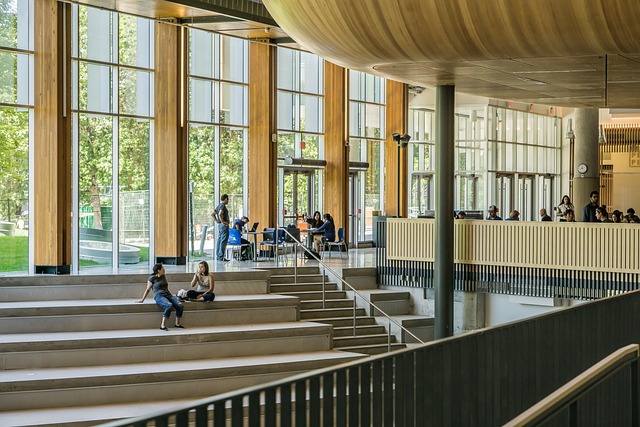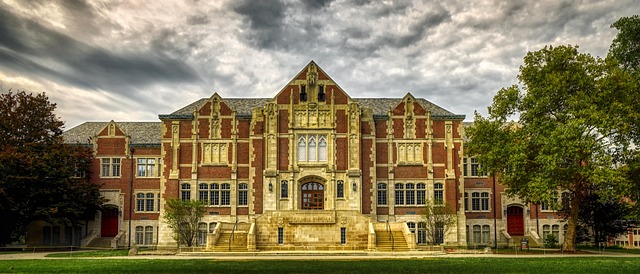Before securing student housing, students should prioritize location preferences, desired amenities, and social living arrangements. Research thoroughly using online resources and peer insights. Visit potential accommodations to assess condition, layout, cleanliness, and neighborhood safety. Consider campus proximity and accessibility to essential services. Evaluate cost and lease terms critically; understand fees, duration options (monthly/academic year), subletting policies, and negotiating possibilities for a budget-friendly, tailored student housing experience.
Selecting the right student housing can make or break your academic experience. With countless options available, it’s crucial to approach this decision strategically. Start by understanding your unique needs and preferences—whether quiet study spaces or social hubs are top priorities. Research extensively, comparing different housing types and their locations. Visit properties in person, inspect amenities, and scrutinize lease terms. Balancing cost, convenience, and comfort will ensure a fulfilling and affordable living environment for your student journey.
- Understand Your Needs and Preferences
- Research Different Housing Options Thoroughly
- Visit and Inspect Potential Residences
- Consider Location and Amenities
- Evaluate Cost and Lease Terms
Understand Your Needs and Preferences

Before beginning your search for student housing, take some time to reflect on what matters most to you. Consider factors like location—do you want to live close to campus or in a more suburban area? Think about comfort and convenience; do you prioritize amenities like high-speed internet, laundry facilities, or study spaces? Additionally, assess your social preferences; do you prefer living with fellow students from your program or across different fields? Identifying these needs and preferences will guide your search and ensure you find a housing option that aligns perfectly with your student lifestyle.
Student housing tips often emphasize understanding your unique circumstances. Are you looking for a short-term lease for flexibility or a longer commitment for stability? Do you have specific budget constraints? Answering these questions will help narrow down suitable accommodations, allowing you to focus on the options that best cater to both your educational and personal requirements.
Research Different Housing Options Thoroughly

Before making any decisions, students should research different housing options thoroughly. This involves exploring various types of accommodations, such as dormitories, apartments, or homestays, to find the one that best aligns with their needs and preferences. They should consider factors like location, cost, amenities, security, and proximity to campus. Online resources, student forums, and social media groups can be invaluable for gathering insights from peers who have already experienced different housing scenarios.
Additionally, taking virtual tours or visiting the locations in person allows students to get a realistic feel for the environment. By investing time in this research phase, students can avoid last-minute surprises and ensure they choose a housing option that enhances their overall university experience, fostering a sense of belonging and making daily commutes to classes more enjoyable.
Visit and Inspect Potential Residences

When considering student housing, visiting and inspecting potential residences is an invaluable step. Take time to physically walk through each property, noting its overall condition, layout, and any amenities offered. Pay close attention to details like cleanliness, functionality of fixtures, and the general upkeep of common areas. A well-maintained environment can significantly impact your daily comfort and overall college experience.
During these visits, consider checking out factors beyond basic aesthetics. Assess the neighborhood’s safety, proximity to campus, and accessibility to essential services. Student housing tips often emphasize the importance of feeling at home; choose a place that aligns with your personal preferences and needs. By thoroughly inspecting potential residences, you can make an informed decision, ensuring a satisfying and stress-free student living experience.
Consider Location and Amenities

When looking for student housing, location plays a significant role in your overall experience. Consider proximity to campus, public transport hubs, and essential amenities. Living close to campus can save you time and energy, especially during peak study sessions or late-night library runs. You’ll also avoid the daily commute, allowing for more study time. Look for areas with good access to public transport, like buses or trains, as this will make it easier to get around without relying on personal vehicles.
Additionally, assess the availability of essential amenities nearby. Grocery stores, pharmacies, banks, and dining options are all important considerations. Having these conveniences within walking distance can greatly enhance your quality of life, providing quick access to necessities and saving you from lengthy journeys. Remember, a well-located student housing option contributes to a smoother transition into university life, fostering a sense of community and efficiency in your daily routines.
Evaluate Cost and Lease Terms

When evaluating potential student housing options, it’s crucial to dig deeper than just the location or amenities. One of the most critical aspects is meticulously reviewing the cost and lease terms. Student housing can vary widely in price, from affordable off-campus apartments to pricier on-campus residencies. Compare not only the base rent but also any additional fees, such as utilities, parking, or maintenance charges. Some leases may be monthly, while others could be for a full academic year, so understand the commitment and financial implications.
Negotiating terms is often possible, especially with landlords who cater specifically to students. Students might consider subletting options during summer breaks or looking for housing contracts with flexible termination clauses in case unexpected changes arise. Understanding the financial commitments involved and knowing your rights as a tenant will empower you to make an informed decision that aligns with your budget and needs.






